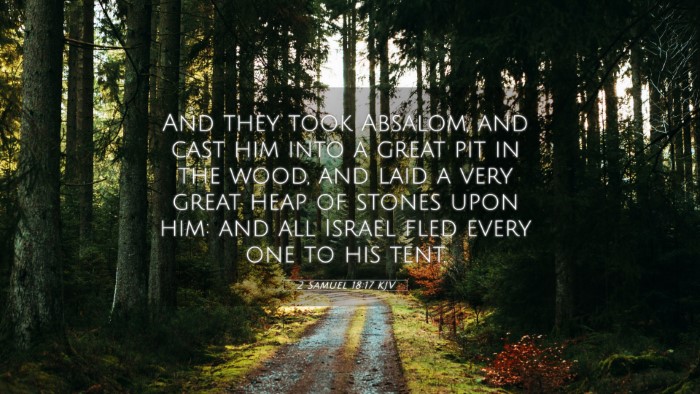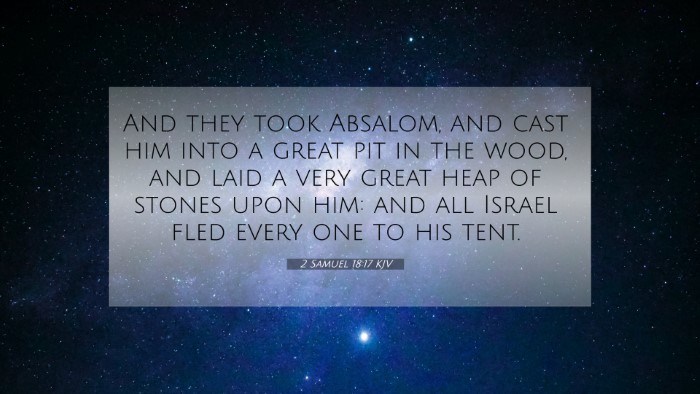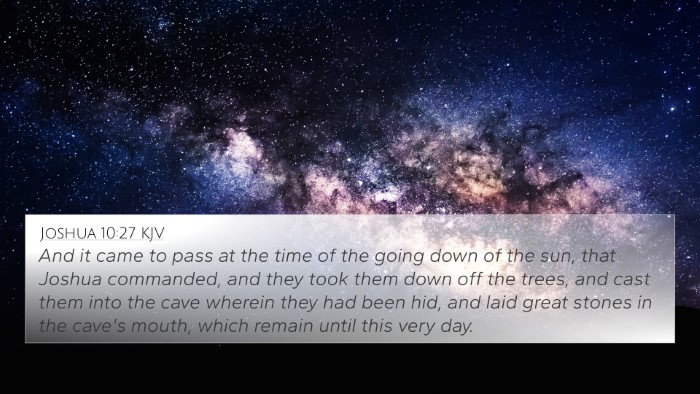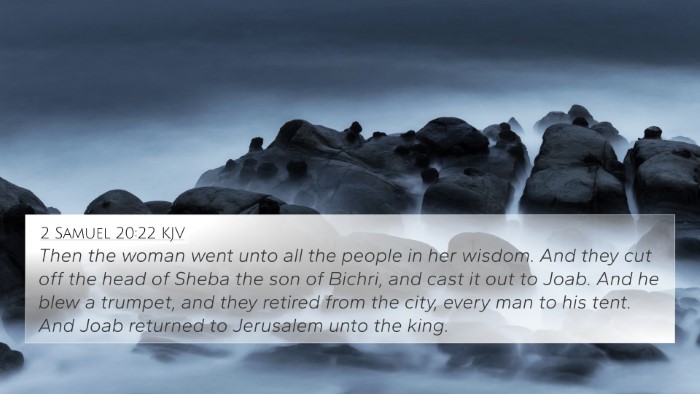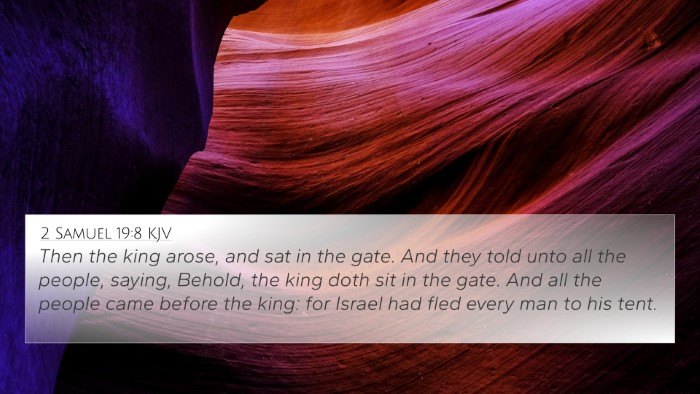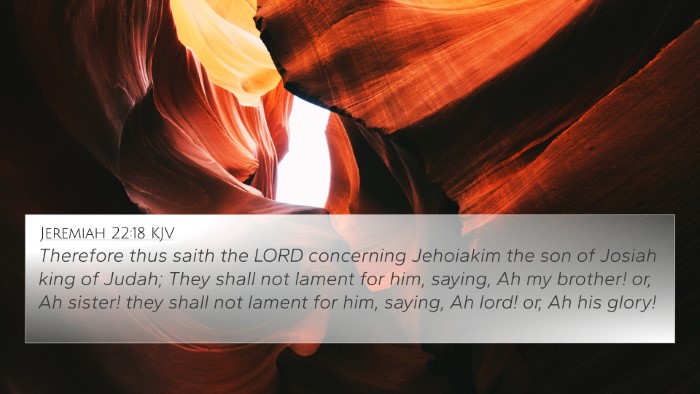Understanding 2 Samuel 18:17
2 Samuel 18:17 states: “And they took Absalom, and cast him into a great pit in the wood, and laid a very great heap of stones upon him: and all Israel fled every one to his tent.” This verse concludes the tragic story of Absalom, a son of King David, who rebelled against his father, leading to his own demise. The consequences of rebellion and the deep sorrow associated with Absalom's death resonate throughout the narrative. Below, we will explore the layered meanings of this verse through the lens of various public domain commentaries.
Summary of Insights
- Matthew Henry: Henry points to the grim reality of Absalom’s futile rebellion against divine authority and his father. He emphasizes the inevitability of consequence due to disobedience and rebellion. The act of casting stones upon Absalom symbolizes the ingratitude and rejection of one who once sought power over unity.
- Albert Barnes: Barnes underscores the political implications of Absalom’s death. The actions taken by the soldiers reflect the response of a nation that has suffered under civil strife. Casting stones upon Absalom signifies both a literal and metaphorical burying of the past, as Israel begins to return to normalcy after a tumultuous period.
- Adam Clarke: Clarke elaborates on the burial practices of the time, indicating that the heap of stones served both as a marker of memorial and a deterrent against future rebellions. Clarke also discusses the sorrow that enveloped David upon hearing of his son’s death, illustrating the complex emotions entwined with leadership and familial love.
Key Themes and Interpretations
The primary themes originating from 2 Samuel 18:17 include:
- Rebellion: The consequences of Absalom's rebellion against his father and the Lord serve as a cautionary tale.
- Loss and Grief: King David's profound sorrow exemplifies the depths of personal loss, even amidst political victories.
- Divine Judgment: The manner of Absalom's death is often viewed as a reflection of God's judgment on his actions.
- Political Ramifications: The aftermath of civil strife illustrates the precarious nature of power and loyalty.
Cross-References to 2 Samuel 18:17
Understanding 2 Samuel 18:17 is enriched by examining its connections with other scripture. Below are key verses that relate:
- 2 Samuel 15:1-6 - This passage details Absalom's conspiracy against David, showcasing his ambition and the initial stages of rebellion.
- 2 Samuel 16:21-22 - Ahithophel's counsel to Absalom illustrates the manipulation and treachery that characterized the rebellion.
- 2 Samuel 17:23 - The desperate end of Ahithophel aligns with themes of judgment and the consequences of siding against God's anointed.
- 2 Samuel 18:9-10 - The very engagement of Absalom in battle against David shows his deep entanglement in the conflict.
- 2 Samuel 19:1-4 - David's mourning over Absalom communicates the personal turmoil despite the victory over the rebellion.
- Psalms 3:1-2 - This Psalm, attributed to David during the time of his flight from Absalom, reflects the emotional and spiritual struggle faced by David.
- Lamentations 3:30 - Reflecting themes of suffering akin to what David endured shows a broader biblical context of mourning.
Comparative Analysis of Themes
The narrative within 2 Samuel 18:17 can be further explored through thematic connections, illustrating the larger messages within the Scriptures:
- Linking to New Testament Themes: The themes of betrayal, mourning, and redemption in the life of David find parallels in the New Testament's depictions of Jesus' passion and the contrasts of loyalty among His followers.
- Inter-Biblical Dialogue: The implications of rebellion witnessed in this narrative can be traced to the warnings found in Proverbs regarding foolishness and the folly of seeking power unlawfully.
- Identifying Connections with Paul's Ministry: Paul's letters often reflect themes of conflict and reconciliation, echoing David's struggle with his son’s rebellion.
Tools for Bible Cross-Referencing
For those wishing to delve deeper into the study of biblical interconnections, consider these resources:
- Bible Concordance: A useful tool for finding specific words and topics across the scriptures.
- Bible Cross-Reference Guide: A resource that provides insight into related verses and themes throughout the Bible.
- Cross-Reference Bible Study: Techniques that enhance understanding by studying linked scriptures and themes more closely.
- Bible Chain References: A systematic approach to uncovering interrelated verses across the breadth of scripture.
Conclusion
2 Samuel 18:17 serves as a poignant reminder of the complexities of human relationships, authority, and the weight of choices made in moments of unrest. The insights from biblical commentaries reflect a multifaceted understanding of this pivotal moment in David's life and the overarching themes that manifest throughout the Scriptures. Encouraging readers to engage deeply with this text, they may discover profound layers of meaning and connection that resonate with the broader Biblical narrative.

